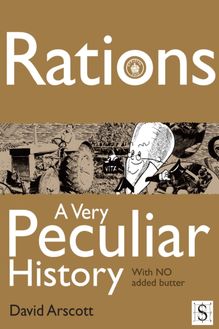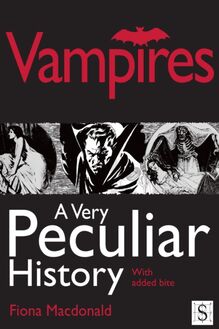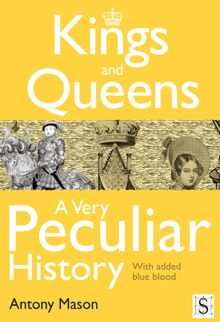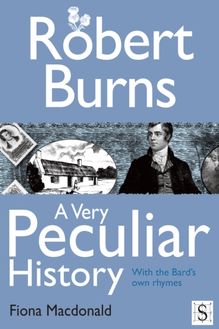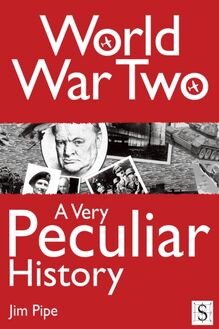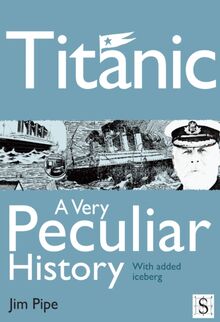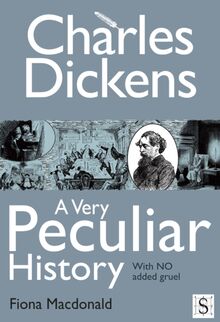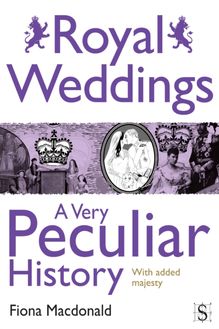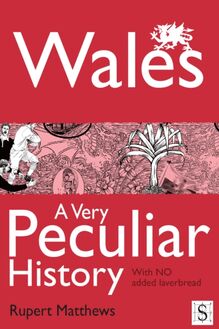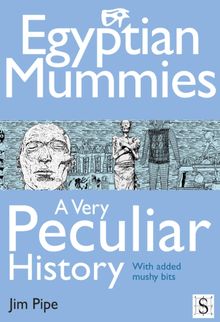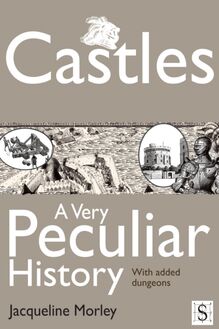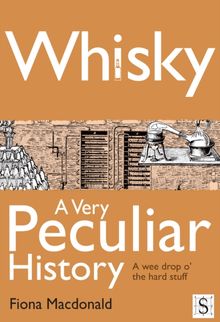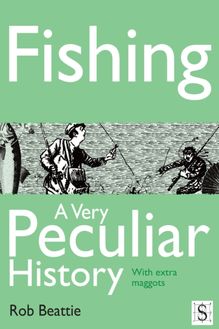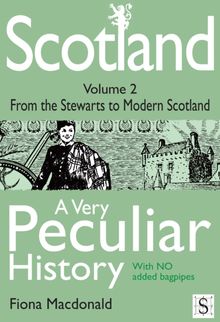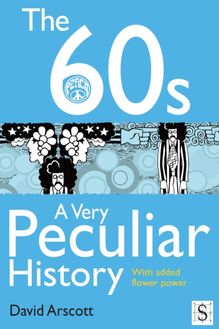Charles Dickens, A Very Peculiar History , livre ebook
60
pages
English
Ebooks
2011
Vous pourrez modifier la taille du texte de cet ouvrage
Obtenez un accès à la bibliothèque pour le consulter en ligne En savoir plus
Découvre YouScribe en t'inscrivant gratuitement
Découvre YouScribe en t'inscrivant gratuitement
60
pages
English
Ebooks
2011
Vous pourrez modifier la taille du texte de cet ouvrage
Obtenez un accès à la bibliothèque pour le consulter en ligne En savoir plus
Publié par
Date de parution
20 décembre 2011
Nombre de lectures
2
EAN13
9781908759009
Langue
English
Publié par
Date de parution
20 décembre 2011
Nombre de lectures
2
EAN13
9781908759009
Langue
English
Title Page
CHARLES DICKENS, A VERY PECULIAR HISTORY
With No Added Gruel
Written by
Fiona Macdonald
Created and designed by David Salariya
Publisher Information
First published in Great Britain in MMXI by Book House, an imprint of
The Salariya Book Company Ltd
25 Marlborough Place, Brighton BN1 1UB
www.salariya.com
www.book-house.co.uk
Digital edition converted and distributed in 2011 by
Andrews UK Limited
www.andrewsuk.com
Editor: Jamie Pitman
Assistant editor: Jodie Leyman
Artists: David Antram, Romano Felmang, Penko Gelev, Carolyn Scrace
© The Salariya Book Company Ltd MMXI
All rights reserved. No part of this publication may be reproduced, stored in or introduced into a retrieval system or transmitted in any form, or by any means (electronic, mechanical, photocopying, recording or otherwise) without the written permission of the publisher. Any person who does any unauthorised act in relation to this publication may be liable to criminal prosecution and civil claims for damages.
Every effort has been made to trace copyright holders. The Salariya Book Company apologises for any omissions and would be pleased, in such cases, to add an acknowledgement in future editions.
Visit our website at
www.book-house.co.uk
or go to
www.salariya.com
for free electronic versions of:
You Wouldn’t Want to be an Egyptian Mummy!
You Wouldn’t Want to be a Roman Gladiator!
You Wouldnt Want to Join Shackleton’s Polar Expedition!
You Wouldn’t Want to Sail on a 19th-Century Whaling Ship!
Dedication
In memory of Angus – a Dickensian character if ever there was one. RIP, good friend.
FMacD
Quotes
‘Whatever the word ‘great’ means, Dickens was what it means.’
G. K. Chesterton, British writer, 1906
‘Little Dorrit is a more seditious book than Das Kapital.’
George Bernard Shaw, Irish writer, 1937
Putting Dickens on the Map
•Charles Dickens is born in Portsmouth, Hampshire on 7 February 1812.
•Dickens’s family moves to London in 1822 when his father is transferred there.
•Dickens marries Catherine Hogarth, who was born in Edinburgh in 1836. He is awarded the freedom of the city – a great honour – in 1841.
•The whole Dickens family takes the first of many jolly summer holidays in Broadstairs, Kent, in 1837.
•Dickens visits schools in north-east England in 1838. He is outraged by bad conditions – especially at Bowes Hall, County Durham – and features them in his next novel, Nicholas Nickleby .
•Dickens’s trip to Yarmouth , on the windswept Norfolk coast, in 1849, inspires many scenes in his semi-autobiographical novel David Copperfield .
•Coketown, the industrial milltown in Hard Times , published in 1854, is partially based on 19th-century Preston, Lancashire.
•In 1856, Dickens purchases Gad’s Hill Place in Higham, Kent.
•In Manchester , Dickens performs in a play opposite actress Ellen (Nelly) Ternan, and falls in love with her, 1857.
•Dickens and Nelly narrowly escape death in a railway accident at Staplehurst in 1865.
Introduction
Why the Dickens?
Dickens was never modest. And why should he have been? Although born in obscure and relatively humble circumstances, he became far and away the most successful author of his age. By the time he died, relatively young (58), in 1870, he had become one of the two best-known writers in the English language – ever. The other was, of course, Shakespeare – by Dickens’s time already enthroned as the English literary hero.
However, as Dickens knew very well, his own works were read, enjoyed – and understood – by many more people than Shakespeare’s. (The same is still true today. A survey in 2011 named Dickens as Britain’s favourite author. Peculiarly, it was conducted for a company selling spirits, although Dickens himself complained (in Bleak House) that ‘Gin-drinking is the great vice of England.’) His readers came from all social backgrounds, and from all around the world.
A national treasure
And, while Shakespeare’s works were admired, Dickens’s were loved and treasured. As he himself declared, he aimed to become, through cheap, mass-produced editions of his books, ‘a permanent inmate of many English homes’. And he succeeded. Although few families still have neat, matching sets of Dickens’s novels on their shelves, almost everyone will have seen a version of at least one of his works at the cinema or on TV. All of Dickens’s novels, even the last, unfinished, The Mystery of Edwin Drood, have been filmed at least once; many of them several times. The most popular is Oliver Twist.
Dickens’s works have also inspired stage plays, musicals, most famously Oliver!, comic books and even a theme park (‘Dickens World’, at Chatham, Kent – once described in The Guardian newspaper as ‘Disney gone to the dark side’, and boasting a children’s soft-play area called – yes, really – ‘Fagin’s Den’). Dickens’s works have even been accused (if that is the right word) of inventing Christmas.
Happy Christmas?
Almost overnight, Dickens’s short story A Christmas Carol , written in 1843 specially to cash in on publishers’ peak sales season just before the annual Christmas holiday, created a powerful new ‘tradition’. In many ways, it is still followed today. The ‘Dickensian’ Christmas became a season of exuberant, often excessive, consumption, as well as a time for sentiment, family reunion and once-a-year private charity. None of these, critics said, made adequate recompense for the exploitation of workers by employers, or the many other forms of social injustice that operated for the rest of the year in Victorian England.
Dickens had an amazing facility with words. At the peak of his powers he was writing at least two novels at once, together with many other shorter pieces. He also delighted in wordplay (think Sam Weller in The Pickwick Papers ), in idiosyncratic ways of talking (from the gnomic ‘Barkis is willin’, to the downright sinister ‘my dears’ of Fagin), and in inventing extraordinary names for his characters. Many of these have found an enduring place in the English lexicon – almost all of us know what is meant by an ‘artful dodger’ or a ‘scrooge’. And we know exactly what a man named ‘Gradgrind’ will be like.
Many of Dickens’s phrases – from ‘not to put too fine a point on it’ to ‘accidents will happen’ – have also entered the international English-speaking consciousness. Even single words, used by Dickens, can have a powerful resonance. Try this test with your friends: if you shout out ‘More!?’ in a tone of outrage mingled with surprise, what image comes into their minds?
A critical reception
It is only fair to add that, since Dickens died, his works have also attracted perhaps more than their fair share of parody or even ridicule. Today, BBC Radio’s surreal Bleak Expectations attracts a devoted cult following, though few modern comments are perhaps so cruel as Oscar Wilde’s clever put-down: ‘One would have to have a heart of stone to read the death of Little Nell… without laughing.’ But times change. When The Old Curiosity Shop (of which Nell is, of course, the tragic heroine) was reaching its conclusion, in 1841, over 6,000 people crowded onto the dockside in New York, desperate to read the final instalment. They shouted out to the sailors: ‘Does Little Nell die?’
The baroque energy of Dickens’s writing found a parallel in his own life story. Having despaired of his own future prospects aged 12, he seized his second chance when it came, worked incredibly hard, put the past firmly behind him and reinvented himself as a world-renowned celebrity. He fathered ten children (at least), had two parallel private lives, and met almost everyone worth knowing in mid-19th-century England – from Queen Victoria to Hans Christian Andersen. He loved amateur dramatics, practical jokes, seaside holidays, long walks, tidiness, ‘bling’ jewellery, horse-riding (on his orders, his favourite horse was shot when he died), pet dogs and garishly over-elaborate waistcoats. He made a fortune, but spent a lot of it helping his exceedingly feckless family. His favourite flower was the humble red geranium.
You can’t win them all…
‘We do not believe in the permanence of his reputation… Our children will wonder what their ancestors could have meant by putting Dickens at the head of the novelists of his day.’
The Saturday Review, 1858
A tale of two centuries
In the year 2012, the world celebrates the 200th birthday of a man who could boast – with complete truthfulness – that his life and works had been ‘amazing’. Thanks to years of patient scholarship and loving preservation, almost every detail of Dickens’s life, and a very great many of the words he wrote, have been put on public display. So, if we ask (and it’s extremely hard to avoid the temptation), ‘WHAT the Dickens?’ (the phrase is originally from Shakespeare’s The Merry Wives of Windsor, act 3, scene 2), we can be fairly sure of finding an answer. However, in this little book, we shall also consider the rest of the ‘famous five’ journalistic queries: Who the Dickens? Where? How? When? And Why? Read on, and find out more.
Life and works
Charles Dickens’s life was short – only 58 years – but full of incident, very busy, and sometimes hidden from public view. While he lived, Dickens tried to cover up unhappy or scandalous episodes in his childhood and later adult years. And, to make matters more confusing, he also ‘borrowed’ characters, event
